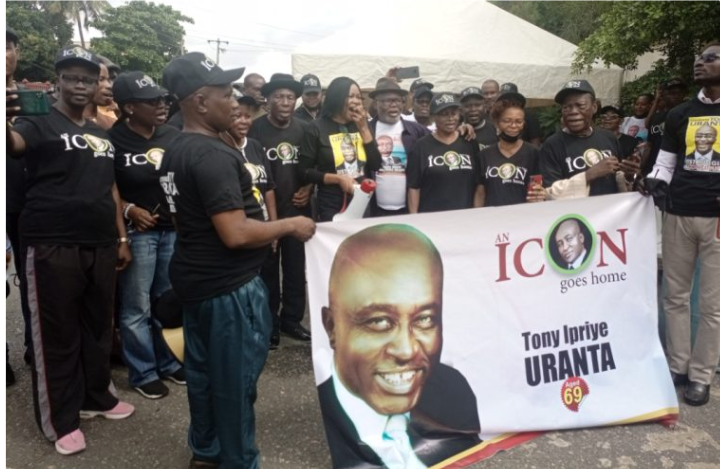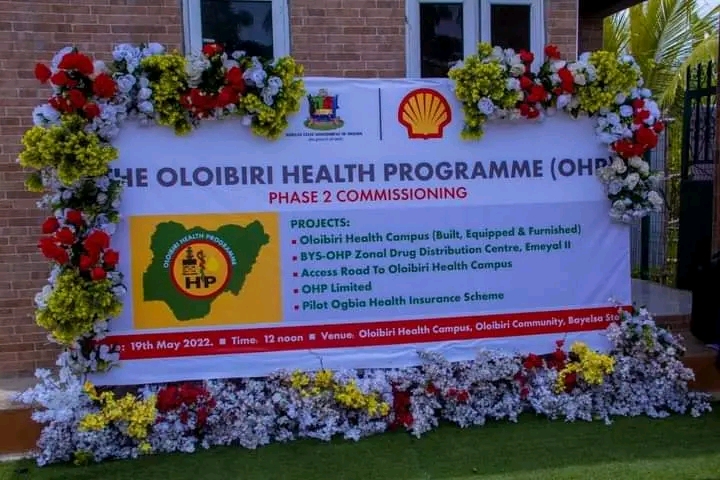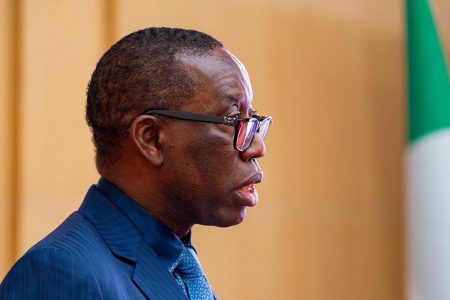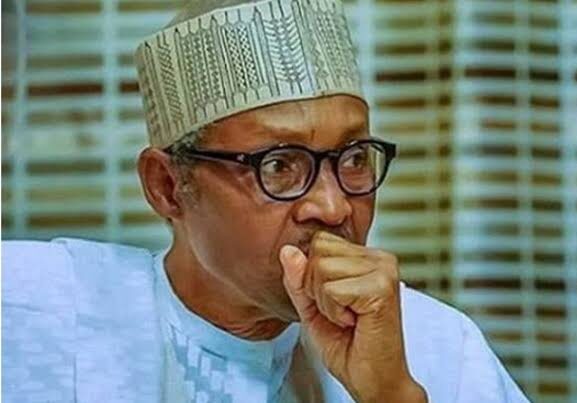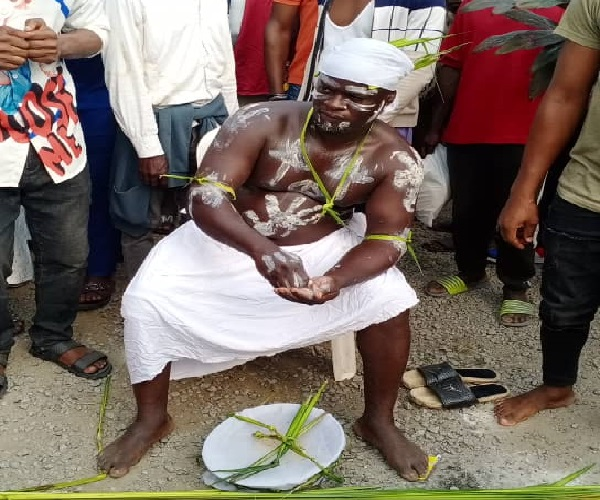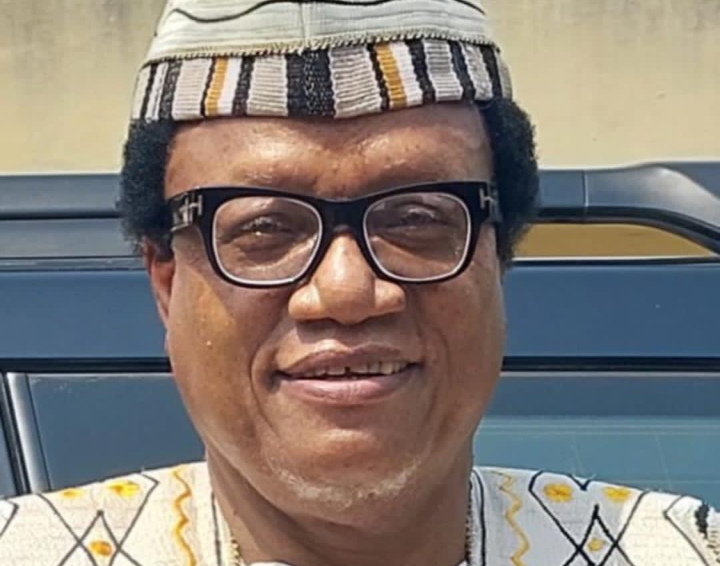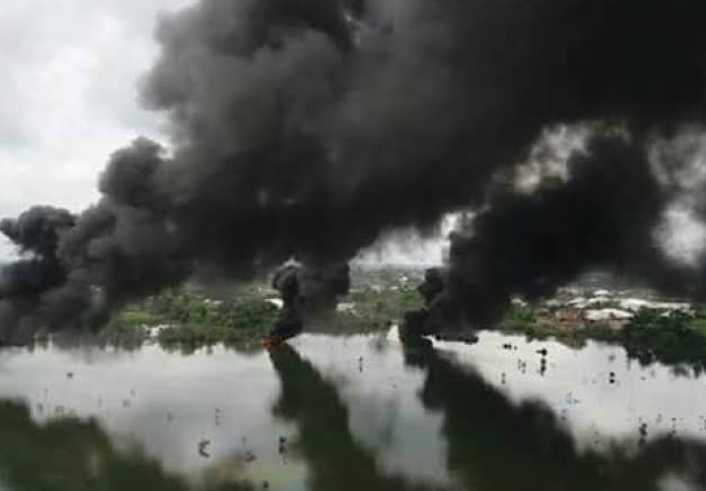…end illegal interim MGT
…earn our respect by doing the right thing
…say for over four years NDDC has been managed illegally
The Niger Delta Elders Forum has advised President Muhammadu Buhari to urgently inaugurate the Niger Delta Development Commission (NDDC) board and make public the forensic audit report.
TheNewsGuru.com (TNG) reports the forum via a statement issued and signed by its national president, Chief Tonye Ogbogbula in reaction to Buhari’s speech at the commissioning of an hostel built by NDDC in Akwa Ibom on Thursday.
TNG recalls the president declaring that all those involved in siphoning and milking the commission’s funds will be made to cough out the money but failed to mention publishing contents of the forensic audit report.
Apparently disturbed by this development, the forum challenged Buhari to publish the report and inaugurate the commission’s board as for over four years the commission had operated an illegal interim management.
To this end, the forum made a four point demand:
“Ending the illegal Interim Management/sole administratorship at the NDDC.
“Inauguration of the NDDC Governing Board in line with the NDDC Act to represent the nine constituent states.
“Publication of the Forensic Audit report for all Nigerians to see. (The report cannot be hidden because it is supposed to be a public document)
“Prosecution of any indicted persons.
Read full statement below:
NIGER DELTA ELDERS FORUM
DECEMBER 30, 2021
PRESS STATEMENT
GROUP FAULTS BUHARI ON NDDC FORENSIC AUDIT, CONTINUED ILLEGAL SOLE ADMINISTRATOR
Our attention has been drawn to rather disappointing statements credited to President Muhammadu Buhari, published in The Nation Newspaper, and many other national newspapers, on Thursday, December 30, 2021, wherein he was shockingly silent on his commitments to make public the entire report of the NDDC forensic audit, which he received on September 2, 2021, and also his promise to inaugurate the Board of NDDC upon receipt of the forensic audit report, in compliance with the law.
Among other things, President Buhari during the virtual commissioning of the NDDC Hostel at the University of Uyo, Akwa Ibom State stated that the “concluded report of the forensic audit of the activities of the Commission was being reviewed.”
The two most salient issues that the authentic stakeholders of the Niger Delta have consistently demanded, and which even the President had promised and made commitments on are: (1) To make public the entire report of the forensic audit, which he received on September 2, 2021; and (2) To end the illegal Interim Management / sole administratorship at the NDDC and inaugurate the Board of the Commission upon receipt of the forensic audit, in compliance with the law, and which promise he made to the nation on June 24, 2021 when he received the leadership of Ijaw National Congress (INC) in Aso Rock, Abuja.
President Buhari’s silence on his commitment to make public the entire report of the forensic audit, and also inaugurate the NDDC Board in accordance with the law, and in fulfilment of his own promise of June 24, 2021, is of grave concern to Niger Deltans as it indicates a continued disregard by this government for the region as well as unwillingness to submit to transparency in administering NDDC and on the issue of making the forensic audit report public for all Nigerians to see.
The central position of the authentic leadership of the Niger Delta region, and all well-meaning Nigerians is that the Federal Government, which spent public funds and a total of two years to conduct a forensic audit of NDDC should make public the entirety of the Forensic audit report which the Minister of Niger Delta Affairs, Senator Akpabio submitted to President Buhari on September 2, 2021.
Without any official forensic audit report made available to the Nigerian Public, how will President Buhari determine culprits and transparently ensure that “every kobo stolen from the Niger Delta Development Commission (NDDC) will be recovered.”?
At the minimum Nigerians deserve to see the entire report, which was submitted to President Buhari four months ago, because the audit was executed with public funds and so the public has a right to know because all Niger Deltans and indeed all Nigerians have been calling on the Federal Government to make the Forensic Audit report public as is done in all decent democratic societies as the details of a forensic report cannot be shrouded in secrecy.
On NDDC Board, while receiving a delegation of the Ijaw National Congress in Abuja in June this year, President Buhari had said that the Board will be inaugurated once the forensic audit report was submitted.
The President said: ‘‘Based on the mismanagement that had previously bedeviled the NDDC, a forensic audit was set up and the result is expected by the end of July, 2021. I want to assure you that as soon as the forensic audit report is submitted and accepted, the NDDC Board will be inaugurated.” That report has been submitted to the President since four months ago, on September 2, 2021, however President Buhari is yet to inaugurate the board.
We note with dismay that President Buhari “directed all statutory contributors to its (NDDC) funding to meet their obligations by remitting all outstanding funds, transparently, to the interventionist agency” under an illegal sole administrator contraption, while the President was silent on the continued illegality of the interim management committees/sole administrator contraptions which have been foisted on the NDDC since 2019 in breach of the NDDC Act, and has been illegally administering the huge funds accruing to the Commission monthly. The situation currently in NDDC which has subsisted for over two years is that we have an illegal sole administrator who is both Managing Director, Executive Director of Finance, and Executive Director Projects, in clear breach of NDDC Act which ensures separation of these duties to ensure checks and balances.
The continued administration of the NDDC by Interim management committee / sole administrator is illegal because the NDDC Act has no provision for this illegality as the NDDC Act only provides that the Board and Management of the NDDC at any point in time should follow the provisions of the law which states that the Board and management is to be appointed by the President, subject to confirmation by the Senate. In effect, nobody is supposed to begin to administer the NDDC and utilise the huge funds accruing to it on a monthly basis without passing through this legal requirement as stipulated in the NDDC Act.
To the detriment of the entire region illegal interim contraptions/sole administrator have been used to fleece the NDDC of its funds in the last two years.
Under the illegal interim managements/sole administrator contraptions, the combined two-year budget for 2019 and 2020, as approved by the National Assembly was N799 Billion. Yet, as pointed out by Professor Benjamin Okaba, President of Ijaw National Congress (INC), under the interim management/sole administrator contraptions, “over N600bn payments have been made for emergency contracts; over 1,000 persons have been allegedly employed in the NDDC between January and July, 2020 without due process; the 2020 budget was passed in December 2020 and N400bn was voted for the NDDC but the commission had spent over N190bn before the budget was passed, thereby violating the Procurement Act.”
On the verge of 2022 President Buhari should be concerned about the disdain of the Niger Delta people over the manner he has handled the NDDC, most especially administering the Commission with illegal interim management/sole administrator contraptions for four and a half years in his six and a half year in office, and therefore needs to end the ongoing illegality in NDDC if he is to be remembered for good in the Niger Delta.
Whereas the North East Development Commission (NEDC) has been allowed to function with its duly constituted Board in place in line with its NEDC Act thereby ensuring proper corporate governance, accountability, checks and balances and fair representation of its constituent states, the NDDC on the other hand has been run arbitrarily in the last two years by Interim committees/sole administrator in breach of the NDDC Act.
In summary, Niger Deltans demand the following:
1. Ending the illegal Interim Management/sole administratorship at the NDDC.
2. Inauguration of the NDDC Governing Board in line with the NDDC Act to represent the nine constituent states.
3. Publication of the Forensic Audit report for all Nigerians to see. (The report cannot be hidden because it is supposed to be a public document)
4. Prosecution of any indicted persons.
Chief Tonye Ogbogbula
National President
